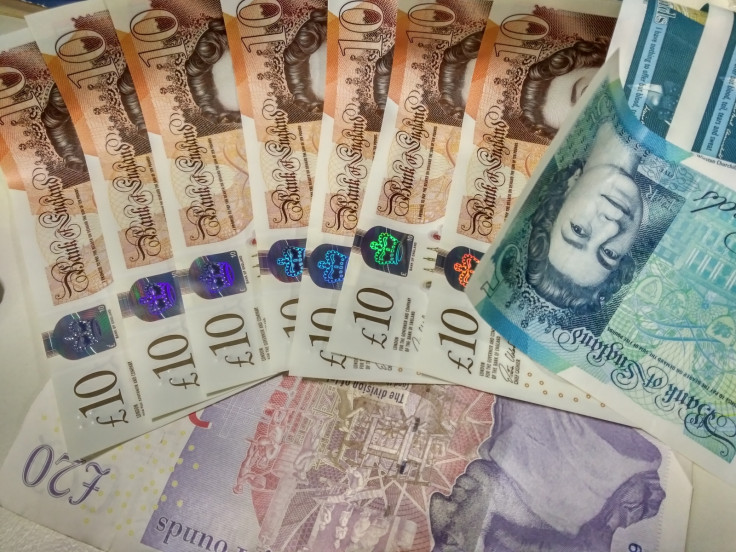Pound spikes against major crosses on UK interest rate hike expectations
Sterling registers huge gains against dollar and euro with the Bank of England poised to hike interest rates.

The pound registered major gains against leading currency crosses on Wednesday (1 November), including the euro and dollar, on the back of high expectations of an interest rate rise by the Bank of England when it meets later this week.
At 11:12am BST, the pound was up 0.18% and 0.21% versus the dollar and euro respectively, changing hands at $1.3307 and €1.1425, thereby extending overnight gains, with economic data indicators strengthening the case for an interest rate rise.
The IHS Markit/CIPS manufacturing purchasing managers' index (PMI) rose to a level of 56.3 in October from 56.0 in September. A level of above 50 points to growth in the sector.
"UK manufacturing made an impressive start to the final quarter of 2017 as increased inflows of new work encouraged firms to ramp up production once again," said Rob Dobson, a senior economist at IHS Markit.
Elsewhere, a survey of the housing market by Nationwide suggested that house prices edged up by 2.5% in October on an annualised basis, up from 2.3% in the previous month, but remaining within the 2-4% range that has been prevailing since March.
On Thursday (2 November), the Bank of England is widely expected to lift interest rates for the first time in a decade, raising the benchmark rate to 0.5% from the historic low of 0.25%, where it has been stuck since the Bank lowered interest rates in August 2016 in the wake of the Brexit vote.
With many in the City already pricing in a rate cut, Prof. Peter Urwin, director of the Centre for Employment Research and professor of Applied Economics at Westminster Business School, argues that the central bank risks its credibility whichever decision it takes.
"The BoE can either surprise the markets by not raising the base rate, weakening sterling, or conform to expectations only to retreat next year; either way, the central bank risks undermining its credibility. Market expectations make a rate rise almost inevitable.
"The UK economy's unexpected resilience in the face of Brexit headwinds provides some support for the BoE's likely decision. Unemployment is at its lowest level since the mid-1970s and GDP growth figures in the third quarter were higher than forecasted. Moreover, inflation hit 3% in September and as the most recent cut in interest rates was an emergency measure following the Brexit referendum, raising the base rate at this juncture might seem like a sensible decision."

However, Urwin added that if rates are hiked this Thursday (2 November), continuing fallout from Brexit makes it almost inevitable that a reverse will be required at a later date.
"Business investment continues to flatline because of Brexit uncertainty and trade talks are unlikely to start by Christmas. Crucially the central bank itself predicts inflation will fall next year, even without a rate rise now."
In terms of pure currency plays, Fawad Razaqzada, technical analyst at Forex.com suggests it might be worth investors' while to stray beyond euro and dollar crosses to the sterling.
"If the pound is going to strengthen this week then it may perform the best against currencies which are already weak or expected to weaken. The Swiss franc may be one such pair as it continues to remain unloved because of the Swiss National Bank's extraordinary loose monetary policy stance, and ongoing "risk-on" trade which has reduced the appeal of perceived safe-haven commodities and currencies, including the franc," he said.
Razaqzada added that the GBP/NZD may be an even better pound cross to watch and potentially trade. "Given the political uncertainly in New Zealand over the past few months, it wouldn't come as a shock to see another drop in NZ employment or at best a smaller-than-expected pick up. Thus, the potential for disappointment is there, which, if realised, could underpin the GBP/NZD pair."






















